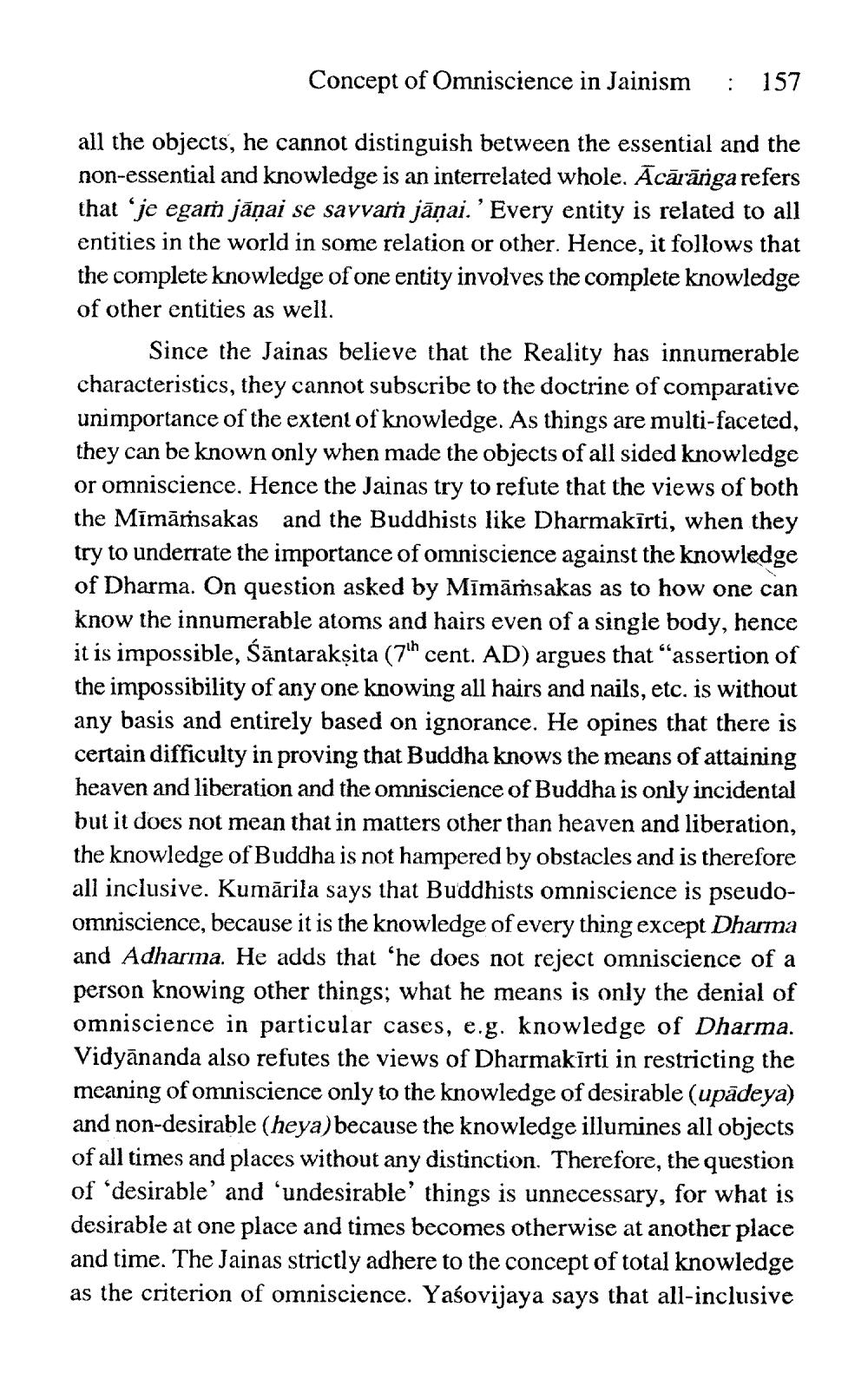________________
Concept of Omniscience in Jainism : 157
all the objects, he cannot distinguish between the essential and the non-essential and knowledge is an interrelated whole. Acaränga refers that 'je egam jāņai se savvaṁ jāṇai.' Every entity is related to all entities in the world in some relation or other. Hence, it follows that the complete knowledge of one entity involves the complete knowledge of other entities as well.
Since the Jainas believe that the Reality has innumerable characteristics, they cannot subscribe to the doctrine of comparative unimportance of the extent of knowledge. As things are multi-faceted, they can be known only when made the objects of all sided knowledge or omniscience. Hence the Jainas try to refute that the views of both the Mimāmsakas and the Buddhists like Dharmakirti, when they try to underrate the importance of omniscience against the knowledge of Dharma. On question asked by Mīmāṁsakas as to how one can know the innumerable atoms and hairs even of a single body, hence it is impossible, Śantarakṣita (7th cent. AD) argues that "assertion of the impossibility of any one knowing all hairs and nails, etc. is without any basis and entirely based on ignorance. He opines that there is certain difficulty in proving that Buddha knows the means of attaining heaven and liberation and the omniscience of Buddha is only incidental but it does not mean that in matters other than heaven and liberation, the knowledge of Buddha is not hampered by obstacles and is therefore all inclusive. Kumārila says that Buddhists omniscience is pseudoomniscience, because it is the knowledge of every thing except Dharma and Adharma. He adds that 'he does not reject omniscience of a person knowing other things; what he means is only the denial of omniscience in particular cases, e.g. knowledge of Dharma. Vidyananda also refutes the views of Dharmakīrti in restricting the meaning of omniscience only to the knowledge of desirable (upädeya) and non-desirable (heya) because the knowledge illumines all objects of all times and places without any distinction. Therefore, the question of 'desirable' and 'undesirable' things is unnecessary, for what is desirable at one place and times becomes otherwise at another place and time. The Jainas strictly adhere to the concept of total knowledge as the criterion of omniscience. Yaśovijaya says that all-inclusive




